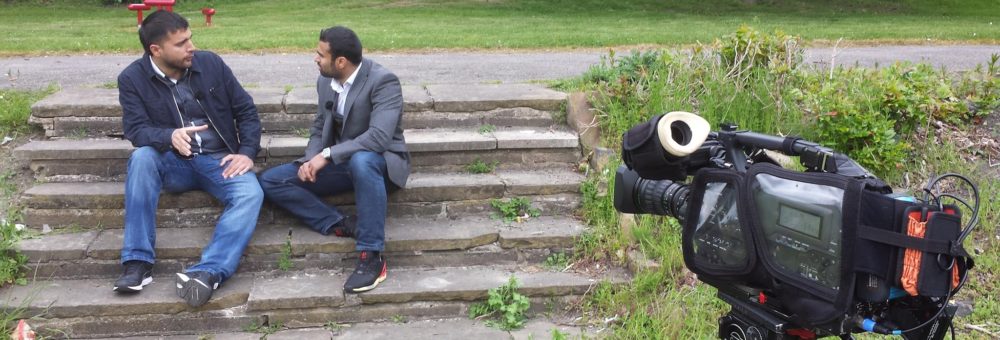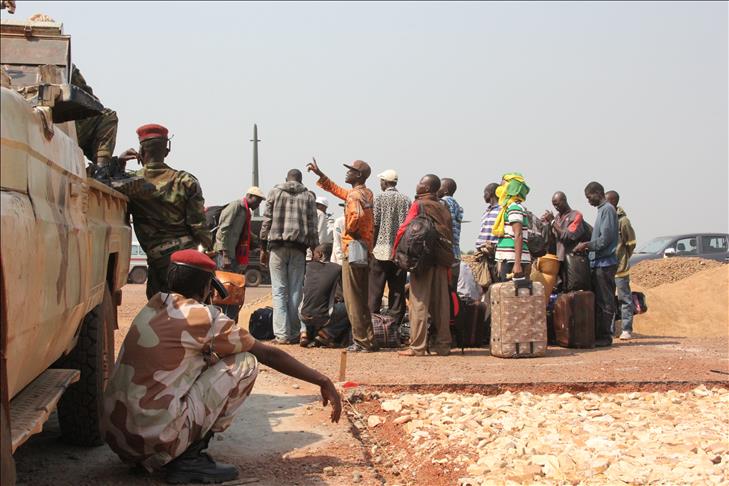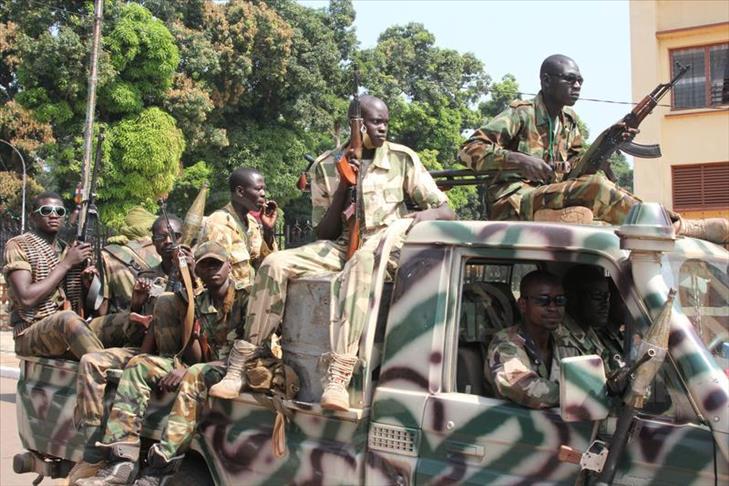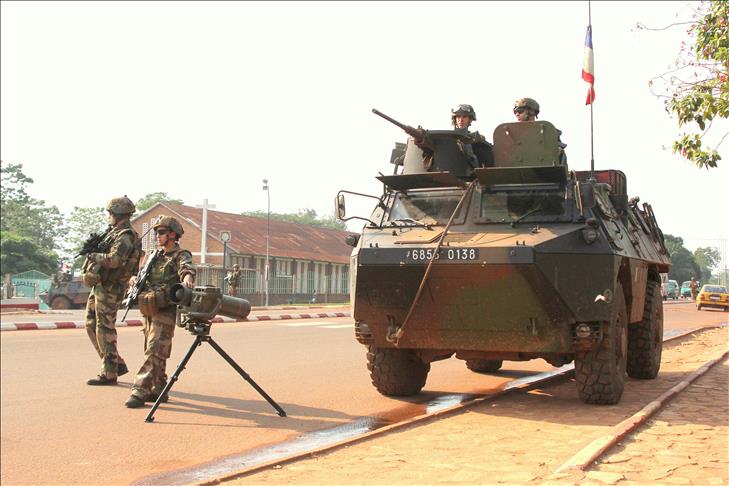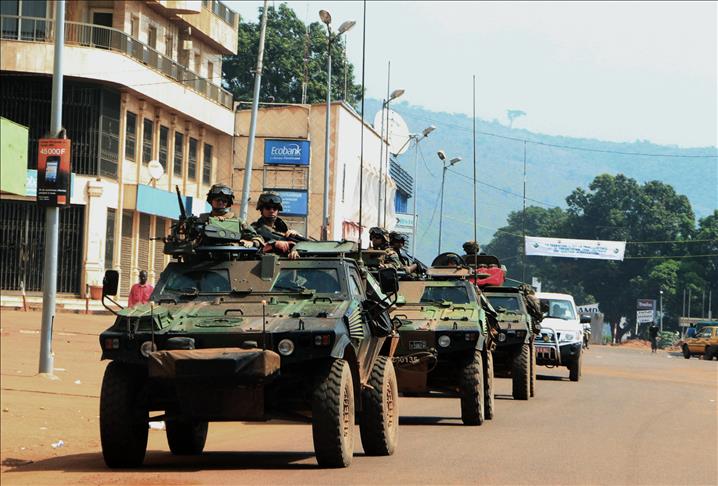 BANGUI
BANGUI
An imam in a predominantly Muslim neighborhood of Bangui, the capital of the Central African Republic (CAR), claimed on Sunday that French troops had killed three Muslims.
Isa Hassan, the imam of Masjid Al Noor in Kilometer 5, claimed French soldiers had shot all three men through the head.
He said the men were all shot Sunday close to Kilometer 5, a predominantly Muslim neighborhood of the capital Bangui.
The chairman of the committee supervising the mosque, Yahiya Abu Bakr, repeated the same accusation.
“The French did this, everyone knows,” he told AA.
“I have covered the heads with plastic bags as they were all shot in the head,” he said. “The bags are holding the heads together.”
People standing around the local mosque repeated his version of events, although the French were not immediately available for comment.
AA asked the crowd if anyone had seen the French actually shoot the men, everyone suggested that they had seen it.
AA reporter saw four bodies inside the mosque, including one in military fatigues.
At least two of the bodies had their heads wrapped with plastic bags.
The fourth body was reportedly of a local imam allegedly killed by the self-styled Christian militia known as anti-balaka.
The French military press officer in Bangui has not responded to our repeated calls and text message until the filing of this report.
CAR, a mineral-rich landlocked country, descended into anarchy in March, when Seleka rebels – said to be mostly Muslims – ousted Christian President François Bozize, who had assumed power in a 2003 coup.
France has deployed nearly 1,600 troops under a UN mandate to restore security in its former colony.
-French problem-
There were roadblocks throughout Muslim areas of Bangui today.
Protestors held up placards and chanted, “Hollande is a criminal,” in referring to French President François Hollande.
Demonstrators used rocks, metal barrels and pieces of wood to block the road.
Earlier in the day, French and Congolese peacekeepers violently broke up an anti-French protest carried out by Muslims in Bangui.
The French and Congolese soldiers fired volleys of teargas and nitrogen grenades to disperse protesters in the Galabadia neighborhood, close to the president’s private residence.
The protestors burnt tires and blocked the roads whilst carrying anti-French placards.
“French crimes against the Central African Republic,” one placard read.
Muslims in the capital have been frustrated and angry at the French intervention which they claim is against the Muslim population.
“The problems started as soon as the French stepped foot in this country,” imam Hassan told AA.
“Normal Muslims have never attacked anyone and even now we hold back, but the French are disarming Muslims and allowing them to be killed by mobs,” he said.
Representatives of Muslims today gave French troops in the country a week ultimatum to end what they described as French support to the anti-balaka.
They threatened a Muslim rebellion against the French and a partition of the country into a Muslim north and a Christian south.
Read the original article published in Anadolu Agency on 22 December 2013
